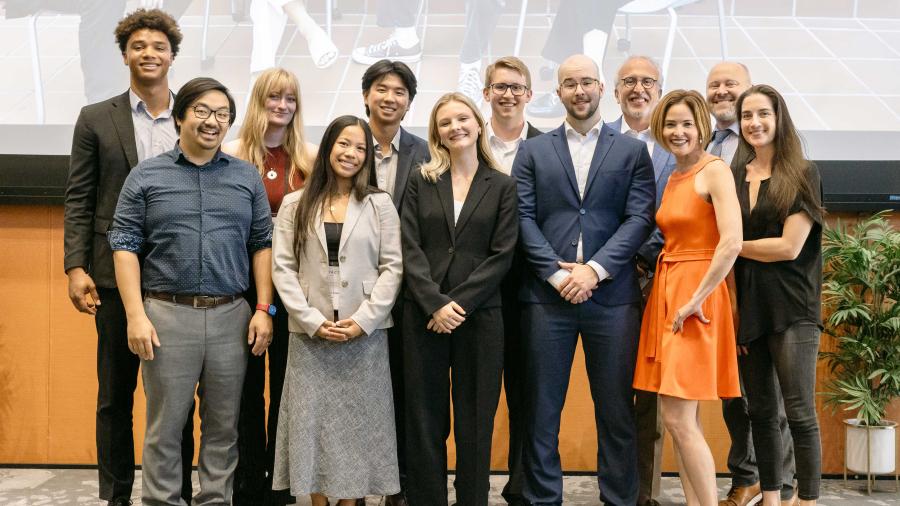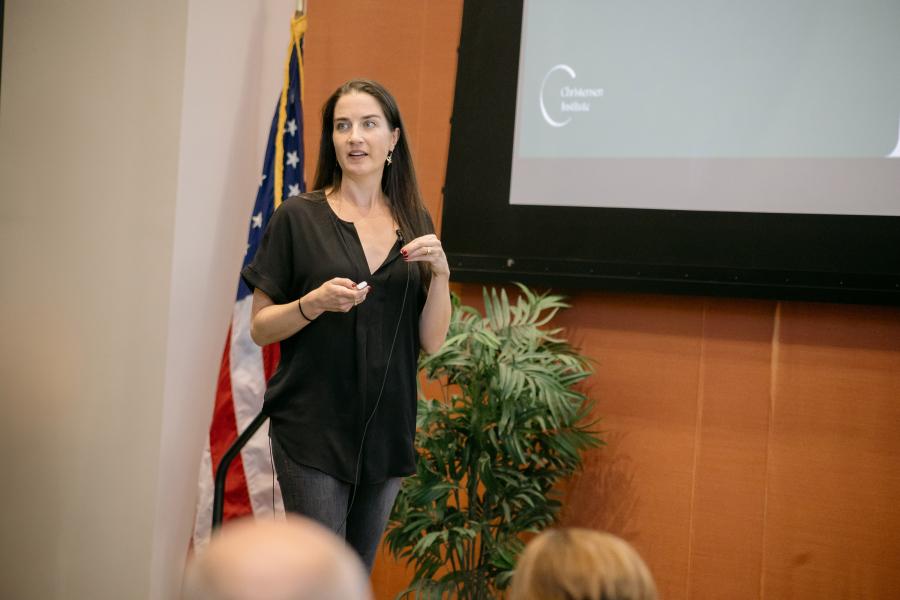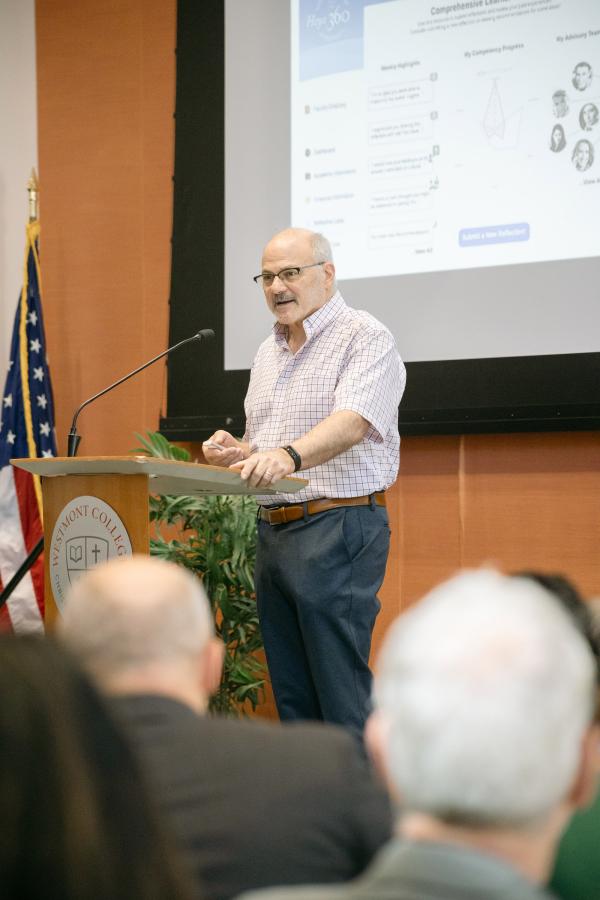Westmont News
Preparing for AI’s Impact on Higher Ed

By
Scott Craig
Higher education must enhance student experiences and foster meaningful relationships if it’s to meet the challenge of rapidly advancing AI. That was the message at Westmont’s Impact Conference, which brought higher education technology leaders to campus July 24-25. They stressed that technology should serve, not supplant, the social networks and values at the heart of learning and opportunity.

Students from Westmont’s Center for Applied Technology Lab (CATLab) presented their second year of progress, turning their AI prototype into a deployable solution that focuses on serving students. They highlighted their key achievements, including integrating AI to streamline study abroad applications while maintaining tight security.
“These programs allow for students to be able to have meaningful relationships and experiences that they'll carry with them the rest of their lives,” said senior Darian Choi. “We invest in people, in experiences, in communities, in a world where that’s becoming increasingly rare.”
Julia Freeland Fisher, director of education research at the Clayton Christensen Institute, discussed the evolving intersection of AI and human connection, emphasizing the importance of social networks in career opportunities. She highlighted that AI is outcompeting human connections in areas like therapy and career advice. She proposed a framework for pro-social AI to support human connection, focusing on face-to-face interactions, building social ROI and enhancing help-seeking skills.

“Why are we designing for students who don't want to talk to humans and giving them resources to this other channel instead of trying to design ways to help support students talking to humans?” she asked. “I'm worried that AI is fueling help-seeking aversion and that’s going to have hidden costs. It certainly could affect retention, but also graduates’ ability to navigate the world and the workplace.”
Randy Bass, vice president for strategic education initiatives at Georgetown University, emphasized the need to balance technology with human values. “What does it mean to teach critical thinking through experience? Can we imagine critical thinking that doesn't just come from books?” Bass asked. “We need to use all the resources we have — our smarts from being in business for 2,500 years, our successes, our knowledge, our values, the passion and power we get from working with our students — and convert those to very intentional actions.”